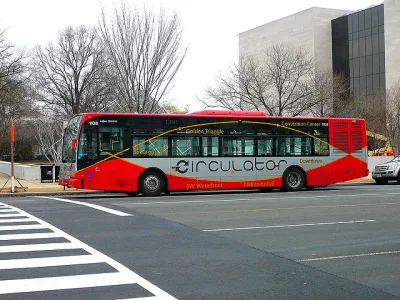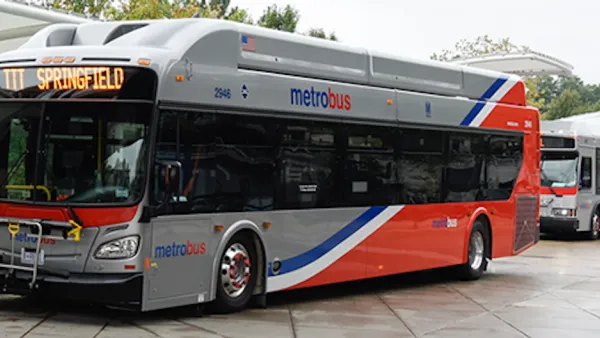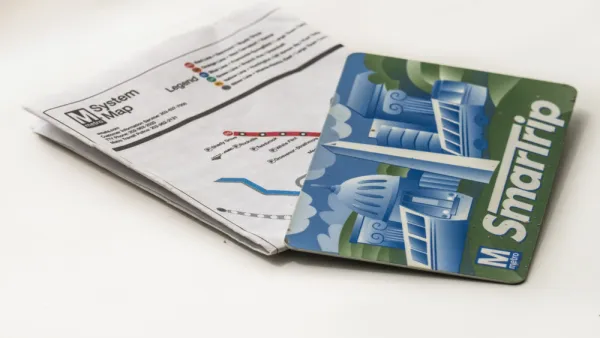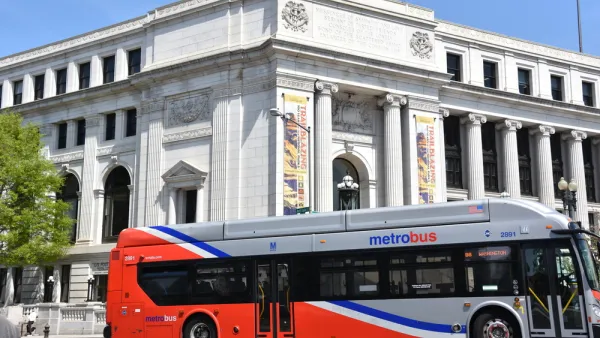The D.C. Circulator is struggling with maintenance costs and system performance. The balkanization of local bus systems in the region might be to blame.

Dan Malouf explains the effects of the balkanization, or fragmentation, of bus systems in the Washington, D.C. region.
So, there are "more than 20 separate bus providers in the Washington area. WMATA is the largest and covers the most territory, but most counties and large cities have their own," according to Malouf. "DC has Circulator, Montgomery has Ride On, Arlington has ART, etceteras."
It's the financial woes of the D.C. Circulator, reported by Martin Di Caro in May, that inspires Malouf's explanation. In fact, writes Malouf, the "situation suggests some of the thinking behind balkanization of the Washington region's bus network may be faulty."
The bulk of Malouf's analysis drills down on the inadequacies of how local bus operators measure the costs of operation. While the WMATA's Metrobus costs $142 per hour to operate, Fairfax County Connector runs at $104 an hour, ART runs at $72 an hour, and the DC Circulator runs at $83 an hour. However, as Malouf notes in detail, if the math looks too good to be true, it probably is.
FULL STORY: DC Circulator woes show why local buses can’t always replace Metrobus

Analysis: Cybertruck Fatality Rate Far Exceeds That of Ford Pinto
The Tesla Cybertruck was recalled seven times last year.

National Parks Layoffs Will Cause Communities to Lose Billions
Thousands of essential park workers were laid off this week, just before the busy spring break season.

Retro-silient?: America’s First “Eco-burb,” The Woodlands Turns 50
A master-planned community north of Houston offers lessons on green infrastructure and resilient design, but falls short of its founder’s lofty affordability and walkability goals.

Test News Post 1
This is a summary

Analysis: Cybertruck Fatality Rate Far Exceeds That of Ford Pinto
The Tesla Cybertruck was recalled seven times last year.

Test News Headline 46
Test for the image on the front page.
Urban Design for Planners 1: Software Tools
This six-course series explores essential urban design concepts using open source software and equips planners with the tools they need to participate fully in the urban design process.
Planning for Universal Design
Learn the tools for implementing Universal Design in planning regulations.
EMC Planning Group, Inc.
Planetizen
Planetizen
Mpact (formerly Rail~Volution)
Great Falls Development Authority, Inc.
HUDs Office of Policy Development and Research
NYU Wagner Graduate School of Public Service




























